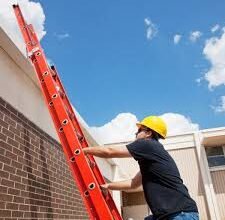
How to choose your courses to learn plumbing?
Plumbing being an integral part of the house and everyday life, it often happens to encounter difficulties and to call a plumber to fix it. However, the price of the repair is often relatively expensive. Want to save money? Or simply retrain and become a professional plumber? There are many establishments and websites that offer the possibility of taking courses to learn the plumbing trade. In this article we will talk about the basic knowledge, courses and training that allow you to perform such an activity.
How to choose a course to learn plumbing?
It is possible to take courses in plumbing at institutions of higher education, vocational training centers as well as at local community centers. The choice of the best course is based on the motivation of the participant. So, the expectations of someone wanting to work as a professional plumber are not the same as those of a homeowner who wants to learn the basics of plumbing.
The best plumbing training meets your needs and allows you to acquire useful knowledge for the rest of your career. Indeed, even the most basic plumbing courses can save you hundreds of dollars on expensive repairs.
The content of plumbing courses must be provided by qualified trainers who have both their professional experience and university degrees. The skills of the instructor have an important influence on the level of knowledge that can be acquired.
Before choosing the best plumbing courses, think about your skill level and what you will need to compensate for your shortcomings. For example, an intermediate level course can be useful for people who enjoy handling tools and who have already carried out small plumbing interventions.
How to learn plumbing to become a professional?
Becoming a plumber without a degree is possible. This is particularly the case in the context of a professional retraining. However, it will be necessary to follow a preliminary training before being able to practice the profession of heating plumber. It is possible to follow the diplomas within the framework of an accelerated training, in other words in one year instead of 2 years.
In addition, it is becoming increasingly essential for a plumber to hold the quality label (Recognized Guarantor of the Environment). Individuals are indeed required to use plumbing services to receive financial aid from the State for the replacement of an old boiler by:
- Condensing unit;
- A solar heating system;
- Wooden or electric.
It is necessary to have certain skills to evolve in the field of plumbing. Indeed, welding, assembly and shaping of materials are required, as well as a solid knowledge of water or gas distribution circuits. Regarding this last point, it is also necessary to know and apply the safety standards relating to the installation of gas systems.
Learn the basics of doing your own Plumbing:
If you decide to do the plumbing yourself, make sure all lines are properly connected and free of leaks. For this reason, you will need, in some places, to use a clamp or add gaskets.
The clamp is frequently used to guarantee the tightness of the assembly of the pipe and the connection. The selection of the hose clamp depends on the diameter, the nature of the pipe and the connection. Thus, screw clamps are suitable for pipe diameters of 15 mm and more. They are full band or rack with open band.
Seals, on the other hand, prevent water leaks between the various connections and at the taps.
To complete your installation, shut-off valves should be installed in certain areas. In particular, they allow you to cut part of your pipes without blocking the general power supply, which can be very practical in the event of a water leak. These shut-off valves are also very effective when repairing or changing your installation.




